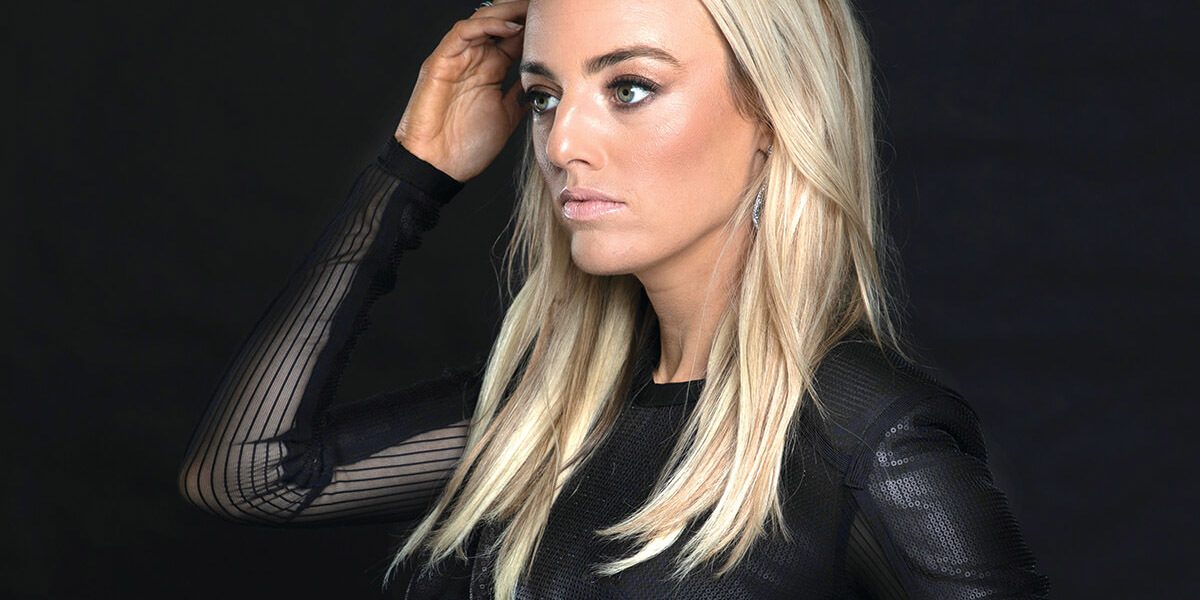Arts & Culture
Emma White Makes Waves in Nashville
The Baltimore-born country singer is an up-and-coming artist to watch.
In a town built on hip-hop and indie rock, it’s not every day that a Baltimore singer-songwriter finds herself a rising country act in Nashville, Tennessee. But Emma White is not interested in the old way of doing things. It’s why her new EP, The Actress, flips the script on love songs, drinking songs, songs about success and stardom, and it’s garnered her attention from the likes of Billboard and Rolling Stone. And after years of being turned down for her male counterparts, she’s launching her own female-forward label, Whitehouse Records, too. On the heels of her launch, we caught up with White about Baltimore radio, her country roots, and gender bias in the music industry.
Growing in Baltimore, what was your first introduction to country music?
The first country group that I loved was the Dixie Chicks. I was the perfect age to become obsessed with them, and they were my first concert, at what is now the Royal Farms Arena. I always say the lead singer, Natalie Maines, taught me how to sing. They were just unapologetic and leaned very pop. But I didn’t really listen to country radio, like WPOC; as a high schooler, I really listened to a lot of the hip-hop and R&B stations, because that’s what was big then. 92Q was my favorite.
You went to school for music at the Berklee College of Music in Boston. Did you know at that point what sound you wanted to pursue?
I really wanted to be the female Justin Timberlake. I did not think I was a country artist, but I had a lot of people guiding me in that direction. My family has always loved country music, and when I was growing up, they had hootenannies and I’d show up and sing a Lauryn Hill song. I wanted to be different and loud and proud about what I liked, and I think I fought it more because that’s just my personality. But at Berklee, I started to write by myself and on the guitar, not to loops and beats like I had been. My songwriting just changed, and I started to really love country and the craft of writing a country song.
After college, how did you make your way to Nashville?
I came home to try to figure out where I should move. I didn’t know where to go—L.A. or New York or Nashville. I played in Baltimore for a while and made trips to all those other cities where I would play all of the singer-songwriter clubs to, like, nobody. But it’s good practice. You learn to stick it out. Now I feel very comfortable on stage; I love to perform live. But my dreams felt too big in New York and L.A.; here, I could actually make connections with people. It felt like there was a community, and a way to work your way up. Like I could make some tangible goals and execute them.
And now you’re releasing a new EP. Your first single, “Ten Year Town,” sparked some national buzz with its release earlier this summer. What are other seminal songs for you?
The title track, “The Actress,” is one of my favorites. It’s about struggling with depression. A large portion of my 20s was spent battling that and making it out of that darkness has been a huge part of my life thus far. I had lost a friend to it around the time I wrote the song, and the words just came to me in the car in full, which never happens. I’ve come a long way and want people listening to know they’re not alone if they’re going through sometime and there is a way to get better.
With the release of this album, you’re also launching your own label, Whitehouse Records.
I’ve always wanted to have my own label and have always looked up to artists who do. I’m a huge Jay Z fan and he couldn’t get a deal, so he started his own label that grew into Roc Nation. I just never thought it would happen so soon; I thought it would be later on in a longer career.
Why now?
What sparked the immediacy was the gender bias I was experiencing. It just kept happening and I thought, am I just going to keep having the same meetings, over and over again, where people tell me, ‘Well, you know how to write a song, but we don’t have a lane for you, we don’t pitch female songwriters, its riskier to sign women, they’re not playing them on the radio.’ Women were looked at as a bad investment. It was enough of hearing that my gender was the issue. I realized I had to do something about it. And so, we want to fill this need of supporting women, but the overarching goal is diversity and inclusion.
Back in Baltimore, your songs have been on the radio, particularly on WPOC. What has that been like?
It’s been cool. My family and friends tape it for me whenever it comes on. My dad sent me a video on his way to work at the 8 o’clock hour, which was pretty neat.
